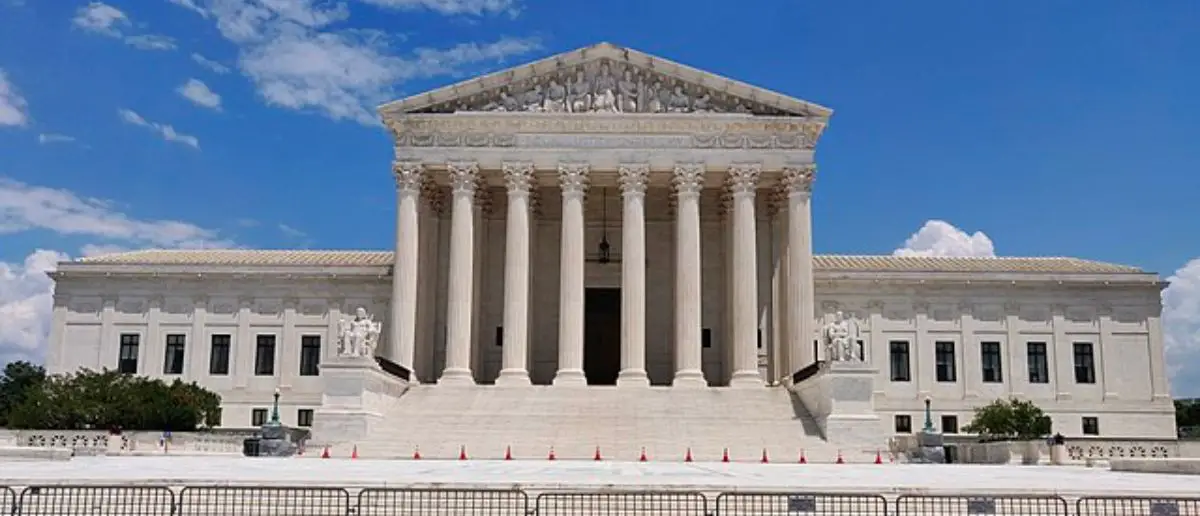
The most important legal case ever is making its way through the courts. The final ruling will change society forever.
And now the U.S. Supreme Court is about to hear the biggest case in American history.
The Fifth Circuit Court of Appeals ruled on Wednesday that the abortion drug mifepristone ought to stay on the market but that the FDA overstepped its bounds in 2016 by allowing the drug to be mailed to patients.
However, because of a ruling by the Supreme Court from earlier this year—a full stay in the legal case—which guaranteed unrestricted access to the drugs until all of the appeals are played out, it is unlikely that the 96-page order by the three-judge panel will have any immediate practical effect.
The Justice Department will likely appeal the decision made on Wednesday.
This ruling brings the whole case closer to being laid at the feet of the U.S. Supreme Court where they will in all likelihood have to give finality to all the revolving appeals involved.
That case will end up being probably the most important case in American history that includes the rights of privacy, the right to life for the unborn, and the manufacturing rights for the companies making the pills.
Alliance Defending Freedom attorney Erin Hawley, who fought the FDA’s approval of the chemical drug, called the verdict a “significant victory.”
Hawley stated during a video conference that the Fifth Circuit “rightly required the FDA to do its job and restore crucial safeguards for women and girls,” which included putting a halt to illegal mail-order abortion.
In a statement, they said, “The FDA will finally be made to account for the damage it has caused to the health of countless women and the rule of law by unlawfully removing almost every meaningful safeguard from the chemical-abortion drug regimen.”
She said that the FDA’s 2000 approval of brand-name Mifeprex and subsequent 2016 and 2021 relaxations of limitations on the drugs were motivated by politics “without regard to women’s health or the rule of law.”
The FDA approved mifepristone in 2000, but a lower court order in April temporarily halted that clearance. U.S. District Judge Matthew Kacsmaryk, a conservative appointed to the Texas court by former president Trump, ruled at the time that the “FDA acquiesced on its legitimate safety concerns — in violation of its statutory duty — based on plainly unsound reasoning and studies that did not support its conclusions.”
The three-judge panel of the Fifth Circuit decided to reinstate access to mifepristone less than a week later, reasoning that the legal challenge appeared to have been submitted after the statute of limitations had lapsed. However, the panel decided 2-1 to halt recent changes imposed by the FDA that simplified access to the medicines, such as reducing the number of mandatory doctor visits and permitting mail-order dispensing. Later that month, the Supreme Court imposed a complete stay on the case.
The decision handed down by the Fifth Circuit on Wednesday looks to be identical to that of April.
Since the lawsuit was filed against the FDA’s approval of Mifeprex in 2000, the court concluded that it “likely barred by the statute of limitations.” A generic version of mifepristone was approved by the FDA in 2019, and the court upheld this decision since the plaintiff doctors “have not shown that they are injured by that particular action.”
The FDA expanded the gestational age at which the drug could be used from seven to ten weeks, reduced the number of office visits required to get the drug from three to one, allowed non-doctors to prescribe the pills, and eliminated the requirement that prescribers report non-fatal adverse events involving the pills, all of which were overturned by the court in its 2016 and 2021 rulings.
When the Covid-19 pandemic hit in 2021, the FDA approved mail order distribution of antiviral medication.
The court stated that the FDA “failed to address several important concerns” regarding the safety of the medicine after it had loosened restrictions on mifepristone.
And it didn’t collect data that proved mifepristone could be used safely without a doctor’s prescription and delivery.
Hawley admitted that the Supreme Court stay had not changed anything practically; the tablets would still be available via mail, at least for the time being, and the FDA’s eased regulations from 2016 would still be legal under the law.
The case began with a complaint filed in November on behalf of the Alliance for Hippocratic Medicine, an alliance of pro-life medical organizations, and four pro-life physicians by ADF. A quarter of a century ago, the FDA approved a two-pill chemical abortion schedule, but their lawsuit contends that the FDA lacked the jurisdiction to do so.
The pills were given the green light by the Food and Drug Administration under a provision of federal law that permits for the fast-tracking of potentially risky treatments that can be used to treat a “serious or life-threatening illness.” Hawley said that was incorrect as “pregnancy is not a serious or life-threatening illness. It is a natural biological condition.”
The FDA’s 2000 clearance process for mifepristone was proper, according to government attorneys, and the medications are safe and effective.
The Fifth Circuit’s decision on Wednesday was praised by pro-life groups. ‘The FDA defied science and its own guidelines when it rubber-stamped Democrats’ irresponsible mail-order abortion plan,’ said Katie Daniel, state policy director for Susan B. Anthony Pro-Life America, in a prepared statement.
“Mail-order abortion pills put thousands of women and girls at risk of serious complications from abortion pills every year,” she stated.
Texan Human Coalition’s national director of public policy Chelsey Youman hailed the decision as a “critical win for protecting children in the womb and upholding women’s safety.”
Stay tuned to the DC Daily Journal.





